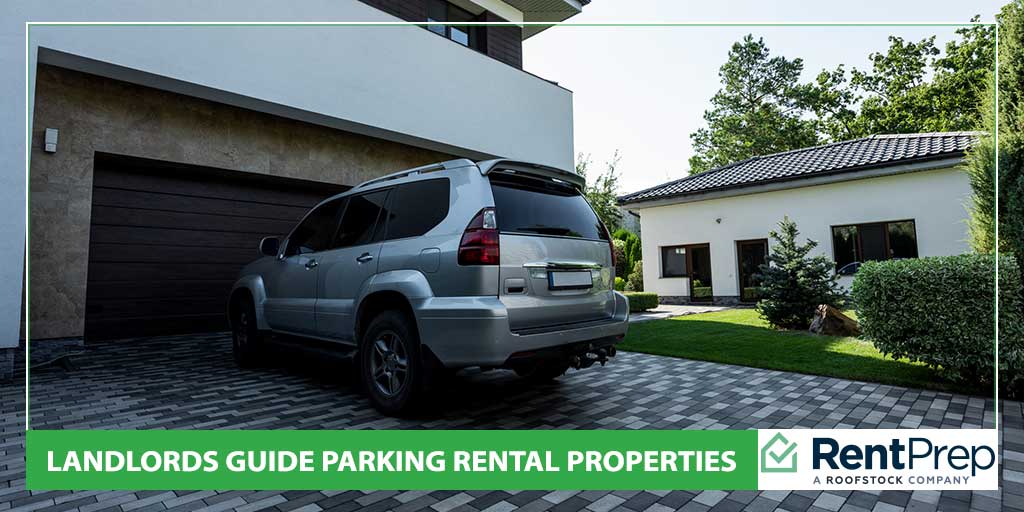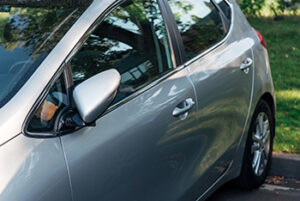
Updated November 2023
Parking is more than just an amenity; it’s a crucial factor that can elevate a rental property’s appeal and profitability. Landlords like you know that good parking facilities can drive up rental rates. However, you’re also aware of the headaches caused by parking-related disputes between tenants and landlords and among neighbors sharing parking spaces.
The challenge lies in finding a delicate balance: providing fair parking solutions that maintain property accessibility and aesthetics while minimizing tenant conflicts. This balance requires a thoughtful approach to parking allocation, clear communication, and the consistent enforcement of parking rules.
In this guide, we’ll explore the intricacies of managing tenant and visitor parking, especially in multi-unit properties. We’ll offer valuable insights, practical tips, and actionable strategies to empower landlords in navigating the complexities of parking management. By the end, you’ll be equipped with the knowledge and tools needed to transform parking management from a potential source of tension into a seamless aspect of your rental property.
Read on for our complete landlord’s guide on managing parking, especially for multi-unit properties.
Landlord Parking Guide Table Of Contents
Are you curious about parking strategies or how to manage parking in lease agreements? Find the relevant information in our comprehensive guide.
- Common Parking Concerns For Landlords
- How To Manage Parking Allocation
- Managing Parking In Lease Agreements
- Managing Parking Infractions: Letter To Tenants About Parking
- Tenant Parking Rights
- Landlord Guide To Rental Property Parking FAQs
- Keep The Peace On Parking
Common Parking Concerns For Landlords

Parking is rarely a problem for single-family homes, which usually have at least a driveway, if not a garage. However, local municipal parking rules, such as winter bans on on-street parking, can be problematic for tenants, especially when guests come to stay. No one wants their friends to be hit with an unexpected parking ticket or have their vehicle towed.
But, parking can be an ongoing significant issue with multi-unit properties, including duplexes and four-plexes, as tenants compete for the best parking spaces or get frustrated when others don’t respect the rules. Social media is full of videos of tenants complaining about neighbors parking in their spots or guests blocking their access.
The biggest challenges landlords face when providing parking for tenants include:
- Space Availability: When dealing with multi-unit properties, there often isn’t enough space for everyone to have their own parking spot, especially when some units have more than one vehicle. This can often lead to tenant disputes.
- Fair Allocation: Allocating parking spaces among tenants can be challenging. Landlords must establish clear policies and guidelines to prevent conflicts and ensure parking is distributed equitably.
- Cost: Constructing parking areas can be expensive, especially since it often involves sacrificing space that could be used for other purposes. Landlords are also responsible for maintaining parking areas, which can be challenging when tenants little or otherwise don’t take proper care of the area. Landlords can also find themselves responsible for removing vehicles that have been abandoned in the parking area.
- Zoning and Regulations: Landlords must ensure they comply with local zoning regulations and ordinances related to parking spaces. Violating these rules can lead to fines and legal issues.
- Accessibility: Ensuring parking spaces are accessible to individuals with disabilities is a legal requirement in many jurisdictions. Landlords need to comply with accessibility standards and provide appropriate accommodations.
- Tenant Turnover: When tenants change frequently, it can be challenging to manage parking arrangements. A neighbor without a car may have let a friend use their spot, which can become a source of contention with the new tenant.
- Guest Parking: Determining how to accommodate guest parking can be a concern. Frequent guests, such as a neighbor’s partner, can often cause contention between tenants.
- Liability: Landlords can be liable for accidents or damage in parking areas. Consider liability insurance coverage to protect against potential legal claims.
Only strategically planned parking and appropriately enforced rules can protect against these issues. Even then, parking tends to be something people get fired up about, so it can continue to be a source of tension.
Unique Urban Parking Problems
Parking at suburban rental properties is a lot different than parking in an urban unit, and no landlord’s guide to parking would be complete without a special section on urban parking issues.
Urban parking is becoming such an important issue for metro cities that many investors demand accurate data for decision-making. Trulia has compiled research for several metro areas to help real estate investors locate the very best properties. One data scientist has created maps for urban areas with better parking options than others.
For example, investors looking to buy in San Francisco may consider checking out Presidio, Sunnyside, and Miraloma instead of Chinatown, Mission Bay, or Tenderloin. Washington D.C. real estate investors may want to avoid Barry Farm, Fairlawn, and Trinidad and look instead at properties for sale in Friendship Heights, Stronghold, and Douglass for better tenant parking options.
No matter where their properties are located, urban landlords must ensure tenants can access as much parking as reasonably possible. After all, even the most prestigious new developments in the heart of the urban metro area will not be as attractive to applicants without adequate parking. The fact is that parking is a must-have for most tenants in the big city.
Landlords who don’t have enough parking spaces at their urban rental property need to get creative when it comes to parking rules and regulations. In most cases, there are too many vehicles and insufficient parking spaces. Other locations have an influx of out-of-town commuters who clog the streets and violate rules as they try in vain to find a parking place.
Some urban complexes are built with poor or limited parking options, while others have no choice but to leave it to residents to argue over on-street or off-property parking. No matter how a landlord decides to regulate and enforce the community’s parking, it should be done consistently and fairly.
Parking, or lack of it, can really make the difference in whether a qualified tenant wants to live in a rental property in the city. Even the newest and largest urban residential centers offer basic parking spaces and require permits.
Here are five things landlords can do to solve or otherwise lighten the burden of urban parking problems for tenants and make their property stand out to applicants:
- Expand current parking as best you can. Whether there is a small parking lot, parking garage, or other parking option, landlords should maximize the current parking to accommodate tenant vehicles. This could mean paving over grassy space or a common area or working with contractors to create additional space.
- Identify nearby parking garages. Knowing there are parking options near the rental property can encourage prospective tenants to apply and current tenants to renew. Providing applicants with rates and locations may tip the scales for an undecided renter.
- Locate valet parking services. Many urban parking management companies and commercial parking garages will offer valet parking services. See what kind of deals they offer and spread the news.
- Use parking as an incentive. Consider offering parking gift cards or so many months free as a move-in special or an incentive to pay rent on time. If parking is at a premium, this will be very worthwhile for urban residents.
- Support city projects to increase parking and permits. Many urban areas struggle to provide adequate parking for residents as well as visitors, and both individuals and local landlord associations can help influence policy and municipal laws regarding parking.
Urban rental properties can be extremely profitable, but landlords who ignore parking are more likely to struggle with attracting and retaining quality tenants who will opt for a rental property that addresses this important issue.
How To Manage Parking Allocation

When deciding how to rent your multi-unit property, you must consider parking allocation. How exactly you divide it will depend on how many units you have and how much parking there is.
For example, you may allocate one space per unit if you have ten units and ten parking spaces. But perhaps you have a mix of smaller one-bedroom and larger three-bedroom units more likely to serve families with more than one car. You may want to assign any extra parking spaces to those larger units.
In these situations, you may also need to choose between assigned and open parking spaces. How contentious this is usually depends on how far away parking spaces are from the units, as there will be competition for the most convenient spaces when parking is open.
What if you have ten apartments but only eight parking spaces? You will need to decide which units do not have parking spots. You may need to reduce the rent on these units since they have access to fewer amenities than comparable units within the property.
This is an important consideration because tenants talk. If a tenant learns they are paying the same amount for a unit without a parking space as one that does have designated parking, they could claim they are being discriminated against or treated unfairly.
Parking arrangements should always be tied to the unit, not the current tenant or their present situation. Imagine you have a three-bedroom unit, but the current tenant is happy to go without parking because they don’t drive, so you allocate the parking elsewhere. When that tenant moves out, you can’t just reclaim the parking space that has been reallocated. It will be much more challenging to find a new tenant for that unit without providing parking.
In addition, if you decide not to assign parking to a unit based on the tenant’s characteristics—for example, perhaps they are elderly and don’t drive—you could be accused of discrimination under the Fair Housing Act. This is why parking conditions should always be tied to the unit, not the tenant.
Managing Parking In Lease Agreements
The tenant’s parking allocation and parking regulations should be specifically defined in the lease agreement. This means that when disputes arise between landlord and tenant or between tenants, you can refer back to the conditions everyone agreed to when they signed the lease.
The lease agreement should cover the following topics:
- The Tenant’s Parking Allocation. The lease agreement should specify the parking available to tenants. It should specify the number of parking spaces, their locations, whether the spaces are assigned or open, and any other restrictions related to the tenant’s allocation. Landlords will often provide tenants with an ID sticker for cars authorized to park in tenant parking. You may also wish to specify how many vehicles can be parked in one space. Some tenants will try to squeeze two small cars, or a car and a motorbike, into a single space.
- Parking Restrictions. The lease agreement should also cover parking restrictions. These will include rules such as no parking on the lawn or in common areas and no parking in spaces specifically allocated for other tenants.
- Guest Parking Rules. Ideally, your property should have some spaces available for guest parking, and the location of these spaces should be clearly stated in the lease. The lease should also include rules such as how many guest parking spaces a tenant can use at one time and how long a car can be parked in a guest spot. The lease should state that if a guest parks in another tenant’s assigned space, their car may be towed at their expense.
- Ban On Inoperable Vehicles. Landlords should ban inoperable vehicles—for example, elevated on a jack or missing tires—from being left in the parking area for more than a few days. These vehicles can quickly become safety hazards, and the longer they stay, the harder they can be to move.
- Towing Procedures. The lease should clearly outline towing procedures, including when cars will be towed, how to contact the towing company, and who bears the financial responsibility for the service.
- Maintenance Procedures. Landlords are responsible for maintaining parking areas. This will include dealing with one-off issues such as potholes and regular maintenance like snow removal. The lease should outline the landlord’s responsibilities and how they will be executed (by the landlord or via a contract), who to contact when there are problems, and timeframes for resolving them.
- Tenant Responsibilities. The lease should also outline tenant responsibilities for maintaining the overall parking area. This may include not leaving rubbish in the parking area, not playing loud music in their cars, especially late at night, and not allowing vehicles to expel excessive exhaust fumes.
If you want to change parking rules, write them into the lease agreement when it’s time for renewal. If an emergency arises and you need to change parking rules mid-lease, you must notify the tenant in writing. They can reject the new rules if they think they are unreasonable.
Bear in mind that you must make reasonable accommodations if a tenant submits a request based on disability. They may request a parking space closer to their apartment or a larger space to accommodate a wheelchair. If the request is reasonable, the landlord must comply.
When dealing with parking, it’s best to remember that the landlord, not the tenant, owns the parking space. This means you’re responsible for maintaining the parking space and also deciding who can use it and for what purpose. However, if you write conditions into a lease agreement, you are bound to those conditions. You cannot simply take away privileges with no reason or notice.
Managing Parking Infractions: Letter To Tenants About Parking
If a tenant is not following the parking rules as specified in their lease, the first step is asking them to modify their behavior. Send them a letter detailing the issue, how you would like it rectified, and the consequences of the tenant not remedying the situation.
The following format is simple and will allow you to document the situation properly.
Date: ____________
Property Address: __________________
Dear ________,
It has come to our attention that parking has become an issue. To remedy this situation, we plan to institute a ____ (insert solution)____ policy. This is not a punishment but a compromise to alleviate any issues caused by shared parking situations.
If you have questions, please feel free to contact us at ___________.
Sincerely,
_________
Signature _________
Tenant Parking Rights
While developments must provide a minimum number of parking spaces for new construction based on size, occupancy, and use, there are no specific laws that mandate whether a tenant must have access to parking when renting.
Tenant parking rights are defined in the lease agreement. Once those rights have been agreed upon, the landlord must live up to their side of the agreement, ensuring the space is available as specified and safe.
Tenants also have the right to be treated fairly when it comes to parking. They can raise issues if they believe their access to parking is being restricted due to discrimination, as prohibited by the Fair Housing Act.
Landlord Guide To Rental Property Parking FAQs
Below are answers to some of the questions most frequently asked by landlords about tenant parking.
What is an allocated parking space?
An allocated parking space is a specific parking spot allotted to a tenant as part of their rental agreement. This can refer either to a specifically assigned parking space or an open space within a defined parking area.
What are the places prohibited for parking?
Most residential properties will have a designated parking area and other areas, such as lawns and common areas, where parking is prohibited. Parking is also prohibited in legally defined areas, such as in front of fire hydrants and near crosswalks.
Can a landlord take away a parking space?
While the landlord owns the parking space, once they allocate the space to a tenant in a lease, they cannot take that space away during the lease period without just cause. However, you can revoke access to that parking space if you can show the tenant is violating the agreed terms of use as laid out in the lease agreement.
What is the difference between a parking space and a parking place?
These terms are often used interchangeably, but a parking place usually refers to an overall parking area or parking lot, while a parking space is a specific space within that lot. For example, your property may have a tenant parking place, and tenants may have assigned parking spaces.
Can you sublet your parking space?
Whether a tenant can sublet their parking space depends on the terms of the lease agreement. The agreement may specifically address subletting or state that the vehicle parked in the tenant’s allocated space must belong to the tenant.
Keep The Peace On Parking
Managing rental properties can be challenging, especially when managing parking for multi-unit properties. There usually aren’t enough spaces for all tenant vehicles, and even when there are, conflicts often arise about the best spaces, guest parking, and parking etiquette. These can all quickly become a landlord headache!
While there is no strict formula for managing parking for tenants successfully, landlords should not ignore this vital amenity when purchasing an investment property, managing a property, or staying competitive in the rental market.

